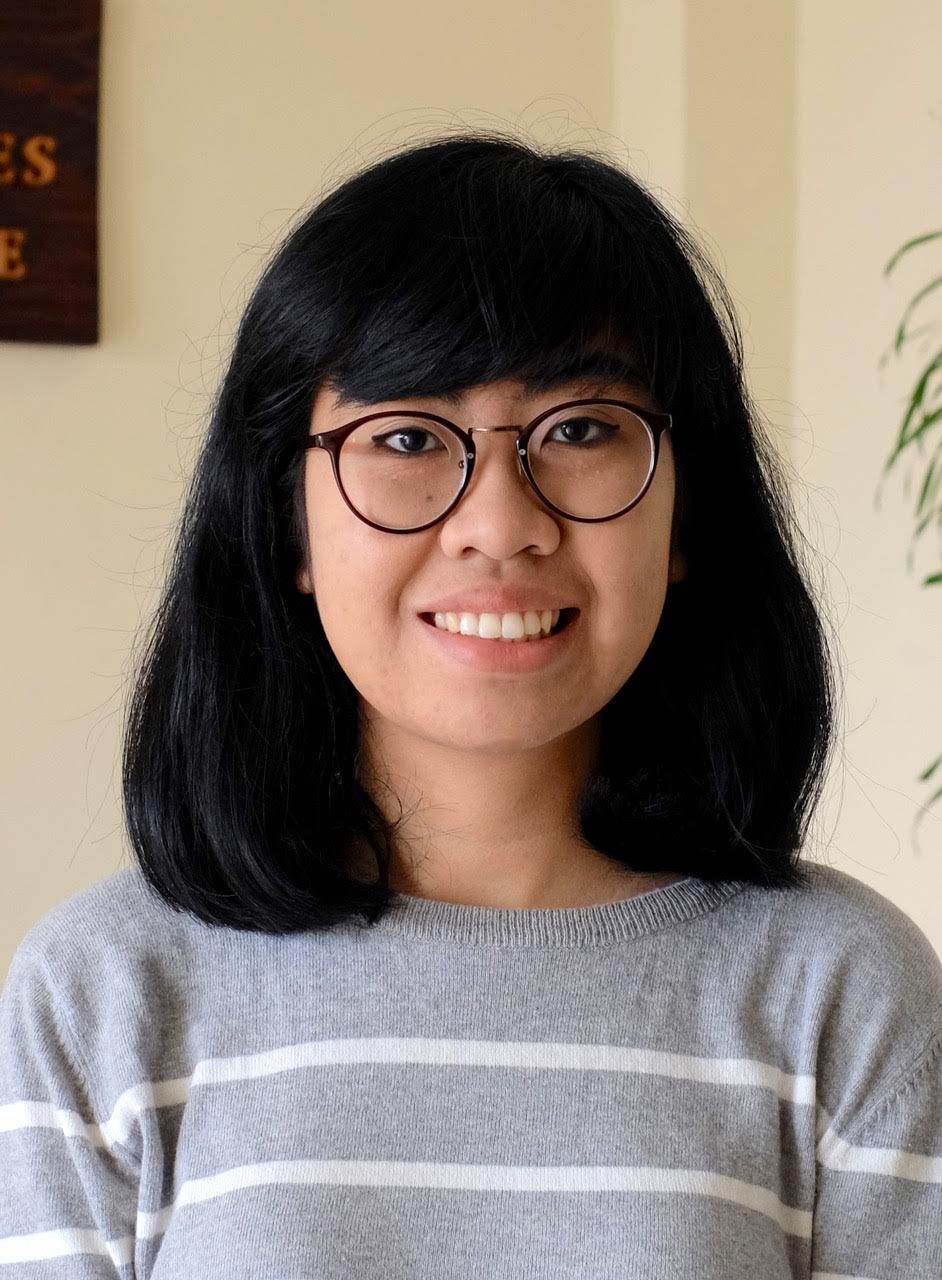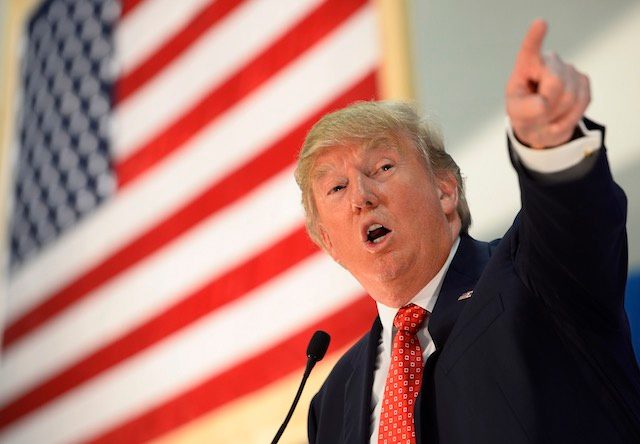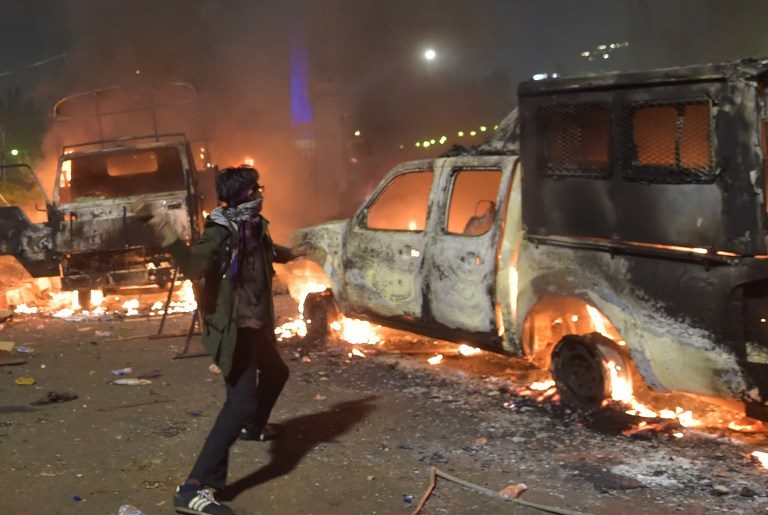SUMMARY
This is AI generated summarization, which may have errors. For context, always refer to the full article.

“Go back to your country!” shouted an elderly man as my husband and I walked down the streets in downtown Boston last weekend. I wished I was quick enough for a retort, but instead both of us picked our speed up and avoided engaging at all.
With U.S. Election Day just two days away, I could not help but assume that the man was going to be voting for Donald Trump, the Republican nominee who has not been shy about his plan to deal with illegal immigrants and ban Muslim travelers.
As an Indonesian student whose program finishes in 2018, I am terrified by the chance of him winning. While my paperwork is intact, his victory would further give blood to xenophobia and racism. In a universe where Trump is President, that elderly man might go beyond just offering snarky remarks.
What’s also discomforting however, is how Hillary Clinton—the first female U.S. presidential candidate from the Democratic Party—has effectively used this fear to grow her support base. In the past several months, I’ve seen my Facebook and Twitter feeds filled with short videos demeaning the Republican candidate, suggesting that if the American people don’t want him to be president, they should vote for Hillary.
While some positive campaigns about her dedication and previous public service experiences made it there as well, they and the policy debates became white noises in the background—and this too, frightens me.
Identity politics
One of Indonesia’s founding fathers, Mohammad Hatta, believed that political parties play an important role in channeling different ‘ideological currents’ (arus pemikiran) and using them towards a shared goal through laws and policies. This is one of our country’s oldest wisdoms that have constructed democracy as we know it.
What Trump has been doing throughout his campaign ploughs the land to foster identity politics, or political alliances and positions based on the interests and perspectives of (often exclusive) social groups with which people identify.
 Identity politics frightens me because instead of focusing energy in finding a common ground for both parties, it tends to look at issues as a zero-sum game where one racial or religious group can only get ahead at the expense of another.
Identity politics frightens me because instead of focusing energy in finding a common ground for both parties, it tends to look at issues as a zero-sum game where one racial or religious group can only get ahead at the expense of another.
By putting racist and xenophobic sentiments as the foundations of voting preferences, this approach discriminates and pressures minority groups.
There is plenty of evidence to support this claim. The Ku Klux Klan, an organization advocating extremist views such as white supremacy, pledged their support for Trump. Furthermore, video footages showed scenes where Trump supporters chant hate comments about the African American community and immigrants, some even led to violent actions.
While polarizing the country to inconspicuous directions, it also pushed actual policy debates to the background instead of the front stage where they are supposed to be. Identity politics frightens me because it takes away the heart of democracy: an accountable government.
Similarly, just last Friday, identity politics sat at the eye of the storm during the march by tens of thousands of Muslims demanding that Basuki ‘Ahok’ Tjahaja Purnama be jailed for blasphemy.
Offended by what he said and his own interpretation of Al-Quran’s Al-Maidah: 51 verse, they rallied to make sure that due legal process regarding this alleged blasphemy is conducted and that Ahok could not hide behind any shields. A couple hours into the night, however, what initiated as a peaceful rally turned violent and footage of skirmishes with police were captured on camera.
Tolerance, please
Putting these blasphemy allegations aside, it is quite clear that identity politics fueled most of these rage. Listening to their chants and seeing posters with hate speech towards the Chinese Indonesian community in the city, though from thousands of miles away, I could not help but feel worried about my friends—especially those living North Jakarta. I wanted to be home and make sure they were okay.
At the same time, I also felt angry at how irrational the situation seemed: apparently one comment from a man could turn into a deep hatred toward an entire race.

(READ: Jakarta protest ends in violence)
Identity politics, again, had successfully torn the city apart. It grew much faster, as proven by Jakarta last week, when compounded by inequality and a poor education system. As a result, at least for the night, we were a nation that was so easily provoked.
In the aftermath, social media became battlefields where everyone seemed to carry the duty of defending the ‘us’ from ‘them’. This is what identity politics does best—it makes you view the ‘other’ as more homogenous and less ‘right’ than the group you belong to.
Identity politics has been prevalent in the U.S. elections this year and last Friday in Jakarta, because it appeals to one of the most important basic instincts that we have, in relation to the way we define ourselves. However, having an identity per se is not the problem; what we make out of it is.
Moving forward, I believe that tolerance and critical thinking can be two crucial tools in mitigating the divisive effects of identity politics. The first one can be enhanced through increased exposure towards diversity in race, religions, and culture, while the other can be trained through making reading and open discussions a habit at schools throughout the country.
After all, Indonesia was envisioned to be a democracy and we’ve been doing great so far. Let’s not give that up because we are too lazy to try to understand one another better. – Rappler.com
Andhyta Firselly Utami graduated from International Relations program at Universitas Indonesia, and is currently a Master of Public Policy candidate at Harvard Kennedy School.
Add a comment
How does this make you feel?
There are no comments yet. Add your comment to start the conversation.